Constance Ore is a retired Teacher, Choir Director, and Organist. And a formidable cook.
 “i’m sick and tired of being sick and tired.” For some reason ever since I have been declared “In Remission” I have felt less well than I did before the wonderful news. Now this is hard. For one thing, there is all the rejoicing that takes place over those lovely words, and naturally, when people see me they give me happy hugs and huge smiles. On Sunday, a woman said, beaming, “Our prayers have been answered! God is so good!” and I stood there thinking about popping an anti-nausea pill and lying down somewhere as soon as possible. Also, dashing through my brain was the perception that I had to look happy too, or risk being considered an absolute ingrate. I instructed my teeth to hang out and said yes indeed, but perhaps she might just keep me on her prayer list for a few more weeks. I am of the opinion that this last round of chemotherapy has taken my body to its limits and my present intention is to call the oncologist and inquire after options about going through the sixth (and last) round of treatment. “i’m sick and tired of being sick and tired.” For some reason ever since I have been declared “In Remission” I have felt less well than I did before the wonderful news. Now this is hard. For one thing, there is all the rejoicing that takes place over those lovely words, and naturally, when people see me they give me happy hugs and huge smiles. On Sunday, a woman said, beaming, “Our prayers have been answered! God is so good!” and I stood there thinking about popping an anti-nausea pill and lying down somewhere as soon as possible. Also, dashing through my brain was the perception that I had to look happy too, or risk being considered an absolute ingrate. I instructed my teeth to hang out and said yes indeed, but perhaps she might just keep me on her prayer list for a few more weeks. I am of the opinion that this last round of chemotherapy has taken my body to its limits and my present intention is to call the oncologist and inquire after options about going through the sixth (and last) round of treatment.
Today, rains fell out of the sky without the usual violence of wind, thunder and lightening. All of Sanctuary is standing very still and silent – doubtless in shock at such a quiet gift of watery sustenance.
 A fierce south wind blew today carrying the heat of high summer with it. Several mosquitoes came forth for the evening walk, and we said, “That it. . . spring is finished.” I am having a struggle between mind and body. My mind says, “Remission, you should feel wonderful” and my body says, “Eeeuuuwww, chemo, chemo and Coumadin too”. Or at least I think that is what it is saying because I have waves of nausea, tiredness and aching. Today I concluded that I have to sit down and listen to the body because it is too frustrating otherwise. A fierce south wind blew today carrying the heat of high summer with it. Several mosquitoes came forth for the evening walk, and we said, “That it. . . spring is finished.” I am having a struggle between mind and body. My mind says, “Remission, you should feel wonderful” and my body says, “Eeeuuuwww, chemo, chemo and Coumadin too”. Or at least I think that is what it is saying because I have waves of nausea, tiredness and aching. Today I concluded that I have to sit down and listen to the body because it is too frustrating otherwise.
I am still in the process of getting the correct amount of Coumadin (Wayfarin – blood thinner) into my system. The term “blood thinner” is misleading; one assumes that one takes the medicine and the blood gets thinner, sort of like paint thinner, or adding more water to tomato juice, so that you can imagine the color of the blood getting paler every passing day. “Not so” said the doctor, “the blood does not change, just the manner of making clots.” Some clotting is needed to protect you should your skin be breached, and to keep the blood from seeping right through the walls of the stomach and such, but too much and you get clots in the arteries or vein with nasty repercussions. (i.e., the third of the kidney that got blocked off and died). The blood is tested every few days, in a PT test (Prothrombin time – the time it takes to make a clot). 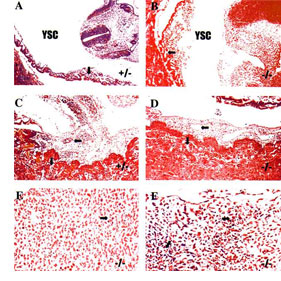 Since the results of this test may vary from lab to lab, a ratio called the INR (International normalized ratio) is used. This ratio was developed by the World Health Organization, and means that there is now a standardized measure of Coumadin levels throughout the world. We have a friend in Banda Aceh, Indonesia who gets his Coumadin levels checked at a hospital near there. I have gone from four to five to seven and back to six mgs. There has never been a reason found for the arterial blood clot that occurred a little over a month ago, and this medication apparently will be a part of my life from now on. Since the results of this test may vary from lab to lab, a ratio called the INR (International normalized ratio) is used. This ratio was developed by the World Health Organization, and means that there is now a standardized measure of Coumadin levels throughout the world. We have a friend in Banda Aceh, Indonesia who gets his Coumadin levels checked at a hospital near there. I have gone from four to five to seven and back to six mgs. There has never been a reason found for the arterial blood clot that occurred a little over a month ago, and this medication apparently will be a part of my life from now on.
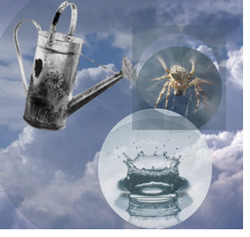 This is one of those “Hallelujah” days – I received the last injections of the fifth round of chemotherapy, and for four entire lovely wonderful days, no needles, doctor’s visits, just splendid “Remission” songs. A fine storm came through yesterday evening to wash everything clean and water generously all the growing things; this morning, mists hung over the pasture at dawn. The spiders had knit all the grasses together with single threads that you could see because they were outlined by the wetness shining in the sun – it was a most extraordinary sight! There must be hundreds of tiny creatures living out their lives within inches of where we walk, yet completely hidden from our sight. This is one of those “Hallelujah” days – I received the last injections of the fifth round of chemotherapy, and for four entire lovely wonderful days, no needles, doctor’s visits, just splendid “Remission” songs. A fine storm came through yesterday evening to wash everything clean and water generously all the growing things; this morning, mists hung over the pasture at dawn. The spiders had knit all the grasses together with single threads that you could see because they were outlined by the wetness shining in the sun – it was a most extraordinary sight! There must be hundreds of tiny creatures living out their lives within inches of where we walk, yet completely hidden from our sight.
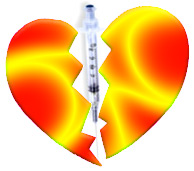 I need to mention the typical nurses that have been giving me injections; they have incredible empathy for all of us who are in their care. When I told the nurse at the Specialty Clinic in Seward that the chemotherapy succeeded in its purpose of pushing back the illness, she began to cry. She said it had just broken her heart to give me the sinking blood counts week after week, and this news was so grand! We shared happy tears in a rare and memorable moment. I need to mention the typical nurses that have been giving me injections; they have incredible empathy for all of us who are in their care. When I told the nurse at the Specialty Clinic in Seward that the chemotherapy succeeded in its purpose of pushing back the illness, she began to cry. She said it had just broken her heart to give me the sinking blood counts week after week, and this news was so grand! We shared happy tears in a rare and memorable moment.
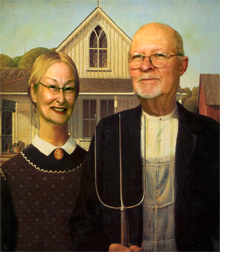 Today will be my fifth day of the of the fifth round of Chemotherapy. Even though I have been pronouced in “remission”, this goes on to be “really in remission” and then a sixth round needs to be gone through so I can be “really, really in remission.” This is not a medical take, just mine. Anyway, on Saturday I drove to the hospital to receive the shots in the abdomen, and for the first time, a nurse who had not handled the Vidaza before administered the injections. She didn’t warm the materials within the syringe, and the procedure was very, very painful. I was in tears by the time I got to the car, and I decided to drive over to the church where Charles would be since he was playing for a funeral there. I got there to see the funeral procession driving away, so I knew that my comfort giver would be available. I went into the church, saw him coming down the side aisle, and commenced to walk toward him when the newly appointed head paster suddenly appeared and said, “I am so glad to have the opportunity to meet you. . . I have met everyone else on the staff, and I have been looking forward to meeting Charles’ wife, too.” Sadly, I was a complete mess. I was crying, and I sort of hiccuped and sniffed my way through, “Nice to meet you, too” and then flung myself into Charles’ arms. He just said, “Chemotherapy” and began patting my shoulder. The new pastor said some kind words and moved on. Sigh. When we got to the car, I told Charles that he likely was thinking that not only was Charles doing a fine job, but he had a totally neurotic wife to deal with as well. C’est la vie. Today will be my fifth day of the of the fifth round of Chemotherapy. Even though I have been pronouced in “remission”, this goes on to be “really in remission” and then a sixth round needs to be gone through so I can be “really, really in remission.” This is not a medical take, just mine. Anyway, on Saturday I drove to the hospital to receive the shots in the abdomen, and for the first time, a nurse who had not handled the Vidaza before administered the injections. She didn’t warm the materials within the syringe, and the procedure was very, very painful. I was in tears by the time I got to the car, and I decided to drive over to the church where Charles would be since he was playing for a funeral there. I got there to see the funeral procession driving away, so I knew that my comfort giver would be available. I went into the church, saw him coming down the side aisle, and commenced to walk toward him when the newly appointed head paster suddenly appeared and said, “I am so glad to have the opportunity to meet you. . . I have met everyone else on the staff, and I have been looking forward to meeting Charles’ wife, too.” Sadly, I was a complete mess. I was crying, and I sort of hiccuped and sniffed my way through, “Nice to meet you, too” and then flung myself into Charles’ arms. He just said, “Chemotherapy” and began patting my shoulder. The new pastor said some kind words and moved on. Sigh. When we got to the car, I told Charles that he likely was thinking that not only was Charles doing a fine job, but he had a totally neurotic wife to deal with as well. C’est la vie.
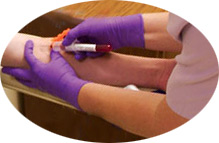 Yesterday I returned to the Specialty Clinic at the hospital in Lincoln to receive the next injections by the same nurse. I told her about warming the syringe and its contents by briskly rubbing them between the hands for at least a minute, and she dutifully did just as instructed. The shots were quite tolerable this time, and she thanked me profusely for telling her – no one else had given her such information and the huge welts around yesterday’s injections were proof that it had not gone well the day before. Today I return to the oncologist’s office for a blood draw and the “fifth of seven”. I can do this. Yesterday I returned to the Specialty Clinic at the hospital in Lincoln to receive the next injections by the same nurse. I told her about warming the syringe and its contents by briskly rubbing them between the hands for at least a minute, and she dutifully did just as instructed. The shots were quite tolerable this time, and she thanked me profusely for telling her – no one else had given her such information and the huge welts around yesterday’s injections were proof that it had not gone well the day before. Today I return to the oncologist’s office for a blood draw and the “fifth of seven”. I can do this.
Next Page »
|
 “i’m sick and tired of being sick and tired.” For some reason ever since I have been declared “In Remission” I have felt less well than I did before the wonderful news. Now this is hard. For one thing, there is all the rejoicing that takes place over those lovely words, and naturally, when people see me they give me happy hugs and huge smiles. On Sunday, a woman said, beaming, “Our prayers have been answered! God is so good!” and I stood there thinking about popping an anti-nausea pill and lying down somewhere as soon as possible. Also, dashing through my brain was the perception that I had to look happy too, or risk being considered an absolute ingrate. I instructed my teeth to hang out and said yes indeed, but perhaps she might just keep me on her prayer list for a few more weeks. I am of the opinion that this last round of chemotherapy has taken my body to its limits and my present intention is to call the oncologist and inquire after options about going through the sixth (and last) round of treatment.
“i’m sick and tired of being sick and tired.” For some reason ever since I have been declared “In Remission” I have felt less well than I did before the wonderful news. Now this is hard. For one thing, there is all the rejoicing that takes place over those lovely words, and naturally, when people see me they give me happy hugs and huge smiles. On Sunday, a woman said, beaming, “Our prayers have been answered! God is so good!” and I stood there thinking about popping an anti-nausea pill and lying down somewhere as soon as possible. Also, dashing through my brain was the perception that I had to look happy too, or risk being considered an absolute ingrate. I instructed my teeth to hang out and said yes indeed, but perhaps she might just keep me on her prayer list for a few more weeks. I am of the opinion that this last round of chemotherapy has taken my body to its limits and my present intention is to call the oncologist and inquire after options about going through the sixth (and last) round of treatment.  A fierce south wind blew today carrying the heat of high summer with it. Several mosquitoes came forth for the evening walk, and we said, “That it. . . spring is finished.” I am having a struggle between mind and body. My mind says, “Remission, you should feel wonderful” and my body says, “Eeeuuuwww, chemo, chemo and Coumadin too”. Or at least I think that is what it is saying because I have waves of nausea, tiredness and aching. Today I concluded that I have to sit down and listen to the body because it is too frustrating otherwise.
A fierce south wind blew today carrying the heat of high summer with it. Several mosquitoes came forth for the evening walk, and we said, “That it. . . spring is finished.” I am having a struggle between mind and body. My mind says, “Remission, you should feel wonderful” and my body says, “Eeeuuuwww, chemo, chemo and Coumadin too”. Or at least I think that is what it is saying because I have waves of nausea, tiredness and aching. Today I concluded that I have to sit down and listen to the body because it is too frustrating otherwise.  Since the results of this test may vary from lab to lab, a ratio called the INR (International normalized ratio) is used. This ratio was developed by the World Health Organization, and means that there is now a standardized measure of Coumadin levels throughout the world. We have a friend in Banda Aceh, Indonesia who gets his Coumadin levels checked at a hospital near there. I have gone from four to five to seven and back to six mgs. There has never been a reason found for the arterial blood clot that occurred a little over a month ago, and this medication apparently will be a part of my life from now on.
Since the results of this test may vary from lab to lab, a ratio called the INR (International normalized ratio) is used. This ratio was developed by the World Health Organization, and means that there is now a standardized measure of Coumadin levels throughout the world. We have a friend in Banda Aceh, Indonesia who gets his Coumadin levels checked at a hospital near there. I have gone from four to five to seven and back to six mgs. There has never been a reason found for the arterial blood clot that occurred a little over a month ago, and this medication apparently will be a part of my life from now on. This is one of those “Hallelujah” days – I received the last injections of the fifth round of chemotherapy, and for four entire lovely wonderful days, no needles, doctor’s visits, just splendid “Remission” songs. A fine storm came through yesterday evening to wash everything clean and water generously all the growing things; this morning, mists hung over the pasture at dawn. The spiders had knit all the grasses together with single threads that you could see because they were outlined by the wetness shining in the sun – it was a most extraordinary sight! There must be hundreds of tiny creatures living out their lives within inches of where we walk, yet completely hidden from our sight.
This is one of those “Hallelujah” days – I received the last injections of the fifth round of chemotherapy, and for four entire lovely wonderful days, no needles, doctor’s visits, just splendid “Remission” songs. A fine storm came through yesterday evening to wash everything clean and water generously all the growing things; this morning, mists hung over the pasture at dawn. The spiders had knit all the grasses together with single threads that you could see because they were outlined by the wetness shining in the sun – it was a most extraordinary sight! There must be hundreds of tiny creatures living out their lives within inches of where we walk, yet completely hidden from our sight.  I need to mention the typical nurses that have been giving me injections; they have incredible empathy for all of us who are in their care. When I told the nurse at the Specialty Clinic in Seward that the chemotherapy succeeded in its purpose of pushing back the illness, she began to cry. She said it had just broken her heart to give me the sinking blood counts week after week, and this news was so grand! We shared happy tears in a rare and memorable moment.
I need to mention the typical nurses that have been giving me injections; they have incredible empathy for all of us who are in their care. When I told the nurse at the Specialty Clinic in Seward that the chemotherapy succeeded in its purpose of pushing back the illness, she began to cry. She said it had just broken her heart to give me the sinking blood counts week after week, and this news was so grand! We shared happy tears in a rare and memorable moment.  Today will be my fifth day of the of the fifth round of Chemotherapy. Even though I have been pronouced in “remission”, this goes on to be “really in remission” and then a sixth round needs to be gone through so I can be “really, really in remission.” This is not a medical take, just mine. Anyway, on Saturday I drove to the hospital to receive the shots in the abdomen, and for the first time, a nurse who had not handled the Vidaza before administered the injections. She didn’t warm the materials within the syringe, and the procedure was very, very painful. I was in tears by the time I got to the car, and I decided to drive over to the church where Charles would be since he was playing for a funeral there. I got there to see the funeral procession driving away, so I knew that my comfort giver would be available. I went into the church, saw him coming down the side aisle, and commenced to walk toward him when the newly appointed head paster suddenly appeared and said, “I am so glad to have the opportunity to meet you. . . I have met everyone else on the staff, and I have been looking forward to meeting Charles’ wife, too.” Sadly, I was a complete mess. I was crying, and I sort of hiccuped and sniffed my way through, “Nice to meet you, too” and then flung myself into Charles’ arms. He just said, “Chemotherapy” and began patting my shoulder. The new pastor said some kind words and moved on. Sigh. When we got to the car, I told Charles that he likely was thinking that not only was Charles doing a fine job, but he had a totally neurotic wife to deal with as well. C’est la vie.
Today will be my fifth day of the of the fifth round of Chemotherapy. Even though I have been pronouced in “remission”, this goes on to be “really in remission” and then a sixth round needs to be gone through so I can be “really, really in remission.” This is not a medical take, just mine. Anyway, on Saturday I drove to the hospital to receive the shots in the abdomen, and for the first time, a nurse who had not handled the Vidaza before administered the injections. She didn’t warm the materials within the syringe, and the procedure was very, very painful. I was in tears by the time I got to the car, and I decided to drive over to the church where Charles would be since he was playing for a funeral there. I got there to see the funeral procession driving away, so I knew that my comfort giver would be available. I went into the church, saw him coming down the side aisle, and commenced to walk toward him when the newly appointed head paster suddenly appeared and said, “I am so glad to have the opportunity to meet you. . . I have met everyone else on the staff, and I have been looking forward to meeting Charles’ wife, too.” Sadly, I was a complete mess. I was crying, and I sort of hiccuped and sniffed my way through, “Nice to meet you, too” and then flung myself into Charles’ arms. He just said, “Chemotherapy” and began patting my shoulder. The new pastor said some kind words and moved on. Sigh. When we got to the car, I told Charles that he likely was thinking that not only was Charles doing a fine job, but he had a totally neurotic wife to deal with as well. C’est la vie.  Yesterday I returned to the Specialty Clinic at the hospital in Lincoln to receive the next injections by the same nurse. I told her about warming the syringe and its contents by briskly rubbing them between the hands for at least a minute, and she dutifully did just as instructed. The shots were quite tolerable this time, and she thanked me profusely for telling her – no one else had given her such information and the huge welts around yesterday’s injections were proof that it had not gone well the day before. Today I return to the oncologist’s office for a blood draw and the “fifth of seven”. I can do this.
Yesterday I returned to the Specialty Clinic at the hospital in Lincoln to receive the next injections by the same nurse. I told her about warming the syringe and its contents by briskly rubbing them between the hands for at least a minute, and she dutifully did just as instructed. The shots were quite tolerable this time, and she thanked me profusely for telling her – no one else had given her such information and the huge welts around yesterday’s injections were proof that it had not gone well the day before. Today I return to the oncologist’s office for a blood draw and the “fifth of seven”. I can do this.